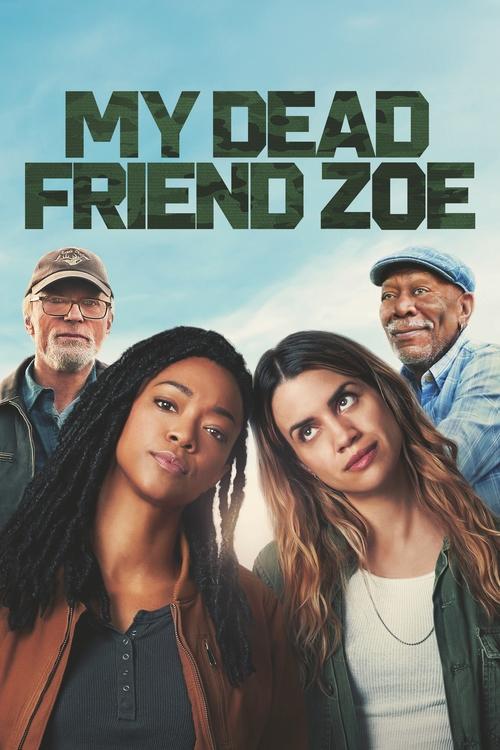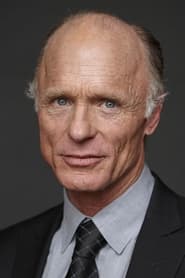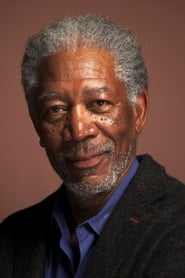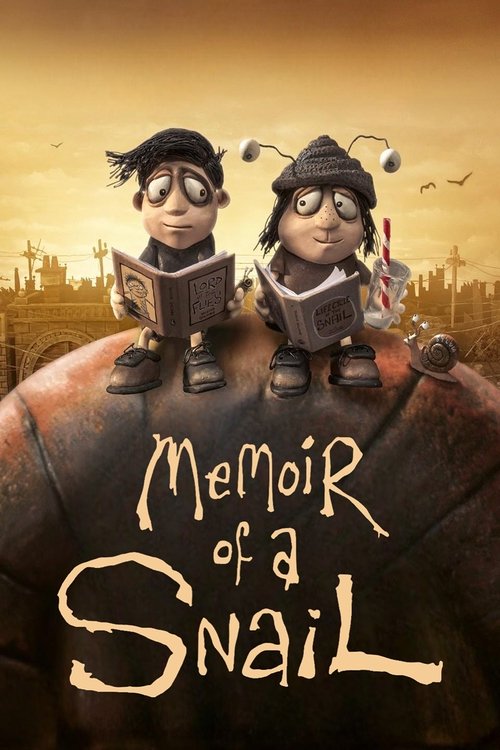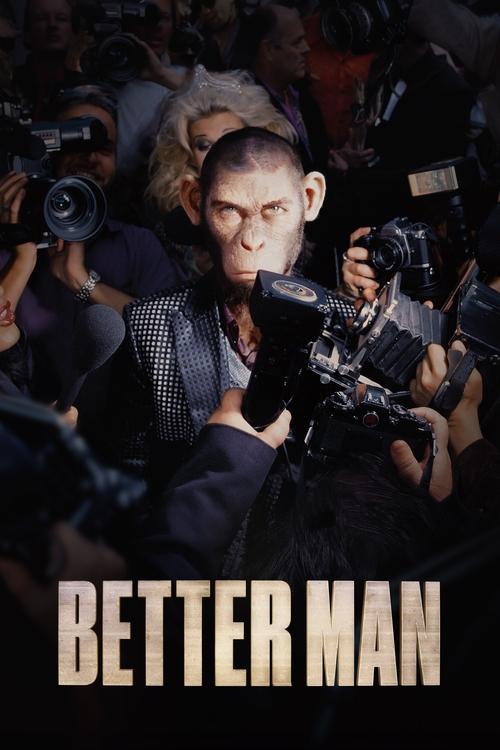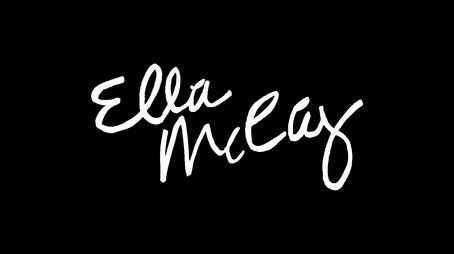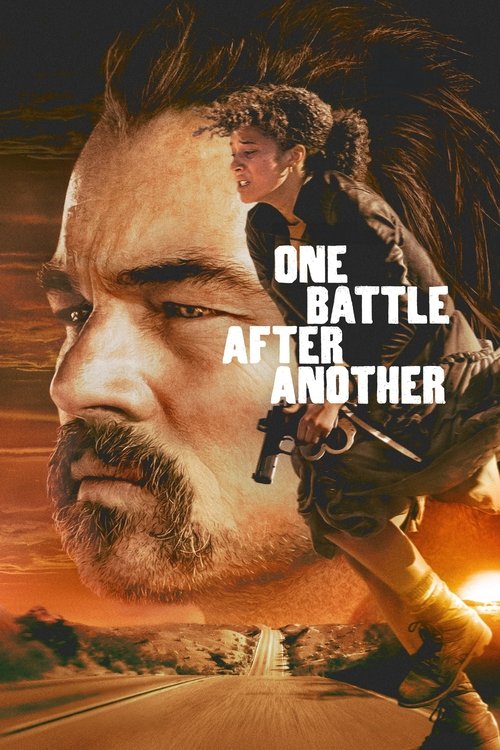
Ask Your Own Question
What is the plot?
The film opens in Afghanistan in 2016 with two Army mechanics, Merit Charles and Zoe Ramirez, parked in a dusty van at dusk. Zoe fumbles with a cracked iPod and presses play; Rihanna's "Umbrella" blares through the speakers despite a visible fault in the device. They laugh, trade barbs and memories, and let the music fill the cramped metal space until SPC Lewis appears at the window and grinds the mood down with an unwelcome interruption. Both women tell him to back off and go back to the private world they share for the brief moment before duty calls. Later that night, while posted at a gate, Zoe tells Merit she is thinking of reenlisting because civilian life feels empty and unwelcoming. Merit insists there is a future outside the military and argues that Zoe will find people and purpose after they leave. During guard rotations that night, an argument escalates when Zoe, feeling desperate, steps toward the gate and angles herself as if to draw enemy fire. Merit grabs her and hauls her back into the compound, physically restraining her until Zoe calms down. They exchange a raw, fragile promise that they will look out for one another after returning home.
Cut to the present. Merit sits in a circle at a court-ordered veteran support group while the facilitator, Dr. Cole, leads the session. A man is speaking about his experience when Zoe suddenly rises from the chair beside Merit and launches into a scathing, profanity-laced rant about the group's usefulness and the point of sharing in a room full of strangers. The other veterans and Dr. Cole look around, bewildered; they only see Merit. Merit snaps from the vision when Dr. Cole calls her name and gently brings the focus back to the room. Outside the meeting room, Merit walks the parking lot with an invisible companion at her side; she lives alone in a small house but behaves as if Zoe still occupies the other bed, unloads dishes into a second place setting and answers to a presence only she can see. She argues with that presence and loses her temper, then calms herself and pretends she is not having the conversation at all.
Merit receives a phone call from her mother, Kris, who tells her that Dale, Merit's widowed grandfather and a former lieutenant colonel, has wandered away from his house. Kris is blunt and worried; she wants Merit to check on him. Merit walks through a neighborhood, finds Dale sitting by a curb several blocks away and, after a short, terse exchange in which Dale confuses the date and struggles to recall details, leads him to a clinic. The doctor conducts cognitive tests and tells Merit and Kris that Dale is in the early stages of Alzheimer's. Kris moves quickly toward making arrangements at a retirement community she names Shady Acres. Merit offers to stay with Dale while Kris makes the necessary plans and paperwork.
Merit continues to attend the mandated support group irregularly. Each time the facilitator asks her to talk about what brought her to court supervision, Merit clams up. A shadowy Zoe perches on the armrest of her chair or prowls the perimeter of the circle, always cutting Merit off when she begins to approach the truth. Dr. Cole refuses to sign Merit's documents until she engages honestly with the program. The group is aware, in practical terms, that Merit's presence there is not voluntary; she faces criminal charges stemming from a workplace accident she caused--an incident the film labels near-fatal and links to claims of criminal negligence. If Merit does not comply with the court's terms and complete the course, jail is a real possibility.
To clear her head, Merit runs through a cemetery one morning where she bumps into Alex, a man cutting weeds by a cluster of headstones. He tells her he maintains the graves of his grandparents and prefers the place neat. Merit snaps at him, then apologizes when she learns his name. The cemetery conversations are interrupted by flashback fragments: Merit and Zoe in civilian clothes talking about leaving the Army, Zoe angrier and more despondent each time she mentions leaving the service, Merit attempting again to reassure her that they will be okay when they return home. The flashbacks show Zoe tolerating a dead-end job stateside, exhausted from shifts and short on friends, while Merit goes back to a semblance of civilian life without the same depth of loss.
Merit goes to Shady Acres to see the facility Kris has been considering for Dale and finds Alex there; he is the manager. They tour a small, functional room, and he points out features meant to make older residents comfortable. Alex then asks if she would like to get drinks that evening. They meet at a nearby bar and trade stories; their chemistry builds, but Alex's curiosity about Merit's military past triggers her. While he asks about her service, Merit imagines Zoe at the bar beside her, rolling her eyes and making cutting remarks. Merit shuts down, abruptly leaves the bar and exits into the night. Alex calls later; Merit answers, apologizes and says she could not handle the memory.
Merit begins spending more time with Dale and less with the support group. She brings him to the lake near his house and, coaxing him, gets him into his old boat--the first time he has set foot on it since his wife's death. They push off from the dock, the motor sputters and starts, and for a few hours Dale slips into a clearer mood. He tells Merit the veterans of his era did not talk about trauma the way young soldiers do now and suggests that his generation coped differently. Merit listens, though she cannot say out loud who she is actually grieving. She watches Dale knot a fishing line and tells him, in small ways, that she will be the one to care for him.
The Fourth of July brings a veterans' picnic at a town park. Merit and Dale arrive early; they listen to bands and watch retired soldiers trade stories. Alex shows up unplanned and greets Merit. When he mentions he runs Shady Acres as an aside, Dale puts two and two together and feels betrayed that Merit and Kris considered moving him into a place run by someone he does not trust. Dale slams Merit with the word "traitor," gathers his cane and leaves the picnic to walk away alone. Merit chases him through thinning light; she routes back to the lake house to find Kris already there. Kris is angry and blunt: while Merit has been ostensibly caring for Dale, he has fallen and hurt himself, and Kris is furious Merit did not tell her about the incident. Kris is resolved to proceed with the Shady Acres placement; she presses forms toward Merit as if they are inevitable.
Merit runs again through the cemetery to escape the escalating pressure at home. Zoe appears beside her and taunts her for running. This time the hallucination triggers a full flashback to Afghanistan one more time. The scene lurches back to the gate, the same night watch and the same tension. Zoe tells Merit she believes there is no place for her outside the military. She demonstrates her despair by edging toward the base perimeter as if to invite enemy fire or to force an irrevocable choice. Merit wraps her arms around Zoe and drags her back into the light of the compound, pushes her fingers away from the trigger of any impulse and promises that Zoe will not be alone. The flashback cuts forward to Zoe in a bleak apartment with a job that keeps her exhausted; bottles and unpaid bills clutter a small table. Merit calls Zoe's phone; Zoe's number rings and goes unanswered. On Zoe's birthday, Merit sees the missed call but rationalizes that she will reach out later, and she fails to pick up when Zoe's number flashes across her screen again. Zoe later dies by a self-inflicted gunshot; the film shows an image consistent with a firearm wound and then silence--the specific act is a solo suicide by gunshot. Merit blames herself in the present for convincing Zoe to stay in civilian life instead of reenlisting and for not answering the birthday call, believing that her decisions contributed directly to Zoe's death.
Back in the present, Zoe's phantom refuses to forgive Merit. Merit tells the apparition that the real Zoe would forgive her, but the vision persists and taunts Merit's attempts to explain herself during group sessions. Dr. Cole notes Merit's evasions when he meets with her privately and presses her for the details that would allow him to complete her paperwork for the court. Merit avoids specifics, insists she is trying and then withdraws when grief overwhelms her.
Merit returns to Shady Acres and physically intercepts Kris as she moves to sign the papers placing Dale in the facility. Merit steps between Kris and the clipboard and says she will move in with Dale; she will be the one to help him get through the changes. Kris and Dale hesitate, exchange looks, and after a tense pause both appear to agree to Merit's plan. Merit speaks with Alex afterward; the two reconcile their earlier awkwardness. He tells her he understands the difficulty of re-entering civilian life and offers help with Dale if she needs it. Merit thanks him, returns home, packs bags for the lake house and helps Dale organize a small room for her arrival. She spends a last night in her apartment, setting two plates on the table and telling the ghost that she has to try to live for both of them. The phantom Zoe occupies a chair as Merit stands, holding a duffel bag, and they share one last, fractured exchange before Merit closes the door behind her.
After she moves in with Dale, Merit takes on the daily tasks of caregiving: refilling pillboxes, helping Dale dress, cleaning the house and cooking simple meals. She accompanies him to doctor's appointments and fills out forms. The routines are small and specific--the film shows Merit folding a sweater, loading the dishwasher, writing checks--and the days pass with a brittle calm. Her compliance with the caretaker role keeps her too busy to avoid the court-mandated obligations entirely, but she still resists opening up in group therapy. Dr. Cole calls her, reminds her of the requirement, and then expresses his surprise when Merit walks into the group room one evening in a dress she has not worn since deployment. She sits down, breathes, and begins to tell Zoe's story aloud.
Merit recounts the van, the iPod and a sequence of private conversations with Zoe about reenlisting. She describes the night at the gate they nearly lost Zoe to despair and the days after return when Zoe's life narrowed to late shifts and quiet, small apartments. Merit says she persuaded Zoe not to reenlist, telling her she would have friends and work back home. She admits she missed Zoe's birthday call and that Zoe later took her own life with a gun. Merit lists the concrete details of what she did and did not do, names dates and times, and reveals the raw facts the court, the group and even Dr. Cole have been waiting for. She speaks for minutes at a time, the film showing faces in the room--some sympathetic, some stunned. Dr. Cole signs Merit's paperwork after listening, and his pen scratches on the form in a way the film emphasizes as procedural but final.
The story shifts to a somber closing sequence of dedications. The director dedicates the film to two friends who were veterans and who died by suicide; the screen shows archival clips of the men and text that recounts sobering statistics: since 9/11 more than 127,000 veterans have been lost to suicide, and veterans are statistically much more likely to die by suicide than to be killed in combat in Iraq or Afghanistan. The film notes that since 2019 those numbers have shifted downward as more resources for veteran mental health become available. Closing images move between Merit helping Dale, quiet scenes of the lake and the empty place at a table previously set for two, and black-and-white footage of the director's friends. The credits include messages and contact information for veteran support organizations and groups that provide crisis intervention, and an on-screen statement from the filmmakers and cast urges viewers to consult the listed programs.
The final shot returns to Merit on the porch of the lake house at dusk. She sits alone with a small cup of coffee, Dale inside nodding off in an armchair, the boat bobbing softly on the water. Merit looks out across the lake, breathes in cold air and then stands, walks slowly back into the house and closes the door behind her. The screen fades to black as the credits continue, a long list of organizations and hotlines rolling beneath a final dedication to those the director memorializes.
What is the ending?
At the end of My Dead Friend Zoe (2024), Merit confronts her grief and PTSD by facing her estranged grandfather Dale and accepting the reality of Zoe's death. She begins to reconnect with her family and the world around her, moving toward healing while still carrying Zoe's memory with her.
The ending unfolds scene by scene as follows:
Merit, an Afghanistan veteran haunted by the hallucination of her dead best friend Zoe, is called to check on her grandfather Dale, a Vietnam vet diagnosed with early Alzheimer's. She travels to the family's ancestral lake house where Dale is staying. The house is filled with memories and tension, reflecting the generational divide between Merit and Dale.
Merit and Dale engage in difficult conversations about their military experiences and personal losses. Dale struggles with his fading memory and his pride as a former Lieutenant Colonel, while Merit wrestles with her PTSD and the hallucination of Zoe, who appears to her as a constant companion. The interactions are raw and emotionally charged, revealing the deep wounds both carry.
As the story progresses, Merit's mother Kris arranges for Dale to move into a retirement home, but Merit resists this, wanting to care for him herself. This decision forces Merit to confront her own fears and isolation. Zoe's presence, initially a source of comfort and denial, begins to fade as Merit starts to accept the reality of her friend's death.
In the final scenes, Merit visits the lake house alone after Dale has moved out. She sits quietly by the water, reflecting on her journey. Zoe's hallucination appears one last time, not as a torment but as a gentle farewell. Merit acknowledges Zoe's death openly for the first time, symbolizing her readiness to move forward.
Merit's fate is one of cautious hope--she remains a veteran coping with trauma but is no longer trapped in denial. Dale's fate is to live in the retirement home, where he will receive care for his Alzheimer's, though the film leaves his long-term outcome open. Kris continues to support her family from a distance. Zoe, as a hallucination, ceases to appear, marking the end of Merit's psychological hold on the past.
This ending highlights the film's themes of grief, the complexity of veteran experiences across generations, and the difficult path toward healing and acceptance.
Is there a post-credit scene?
Yes, My Dead Friend Zoe (2024) has a post-credit scene, but it is not a traditional stinger or extra scene advancing the story. Instead, during the credits, there are photos of the cast alongside images of them in their actual military service. Midway through the credits, a message from the director and two stars appears, providing information and resources for veterans and non-veterans struggling with related issues. This message is part of an educational and support campaign connected to the film, including a pay-it-forward initiative with a QR code for contributions to help others see the movie. However, there is no additional scene after the credits that continues the narrative or offers a stinger.
What is the nature of Merit Charles' relationship with Zoe Ramirez in the film?
Merit Charles, a former army mechanic suffering from PTSD, continues to see her best friend Zoe Ramirez as a hallucination after Zoe's death. Zoe appears to Merit as if still alive and living with her, often interrupting her in group therapy sessions and daily life, reflecting Merit's struggle with grief and trauma.
How does Merit’s grandfather Dale influence the story?
Dale, Merit's widowed grandfather and a former Lieutenant Colonel diagnosed with early Alzheimer's, becomes a significant figure when Merit is asked by her mother to check on him. His condition and Merit's decision to stay with him while arrangements are made for a retirement home serve as a catalyst for Merit to confront her own issues and reengage with her family and past.
What role does the court-mandated support group play in the plot?
Merit attends a court-mandated support group for veterans, where she struggles to engage due to her hallucinations of Zoe. The group, led by Dr. Cole, a veteran grief counselor, represents a setting where Merit's internal conflict and denial are challenged, pushing her toward healing and facing her trauma.
How is Zoe’s personality depicted in flashbacks and hallucinations?
Zoe is portrayed as the more spontaneous and lively friend compared to the reserved Merit. Flashbacks show them bonding during their Afghanistan tour, such as singing along to 'Umbrella' and Zoe's wild, impulsive behavior like sneaking alcohol on the job. These memories contrast with Merit's current state and highlight the depth of their friendship and loss.
Who are the key supporting characters that impact Merit’s journey?
Besides Zoe and Dale, key supporting characters include Merit's mother Kris, who prompts Merit to check on Dale; Dr. Cole, the support group leader who helps Merit confront her grief; and Alex, Merit's love interest, who provides additional emotional support as she navigates her trauma and healing process.
Is this family friendly?
The movie My Dead Friend Zoe (2024) is not family friendly and is rated R, primarily due to strong language, mature themes, and some disturbing content. It deals with heavy subjects such as PTSD, suicide, grief, and complex family dynamics, which may be upsetting for children or sensitive viewers.
Potentially objectionable or upsetting aspects include:
- Strong language: About 27 uses of the F-word and other strong language throughout the film.
- Suicide: A suicide by gunshot is depicted, which is a very sensitive and potentially distressing scene.
- Violence and injury: A man falls and injures his head; discussions of accidents and criminal negligence occur.
- Sexual content: Some flirting scenes, suggestive remarks, and brief nudity or revealing clothing (e.g., cleavage shown, a man in boxers).
- Emotional intensity: The film portrays the emotional struggles of a veteran dealing with loss, PTSD, and family conflict, which can be intense and heavy.
- Discussions of illness: Alzheimer's disease and other serious topics are discussed.
- Support group scenes: People share difficult personal experiences in a support group setting.
Overall, My Dead Friend Zoe is a dark comedy-drama with mature themes and content that make it unsuitable for children and potentially upsetting for sensitive viewers.

